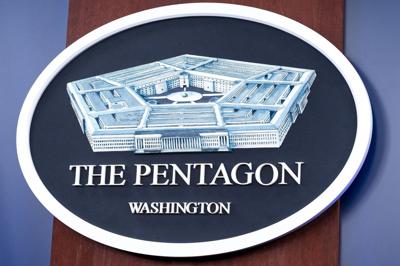WASHINGTON (AP) ŌĆö All but a few of the nearly 400 books that the U.S. Naval Academy removed from its library because they dealt with anti-racism and gender issues are back on the shelves after the newest Pentagon-ordered review ŌĆö the latest turn in a dizzying effort to rid the military of materials related to diversity, equity and inclusion programs.
Based on , about 20 books from the academyŌĆÖs library are being pulled aside to be checked, but that number includes some that werenŌĆÖt identified or removed in last monthŌĆÖs initial purge of 381 books, defense officials told The Associated Press.
A ŌĆö including at the Air Force Academy ŌĆö also have been pulled out for review, said the officials, who spoke on condition of anonymity because the process is still ongoing.
The back-and-forth on book removals reflects a persistent problem in the early months of the Trump administration, as initial orders and demands for an array of , fine-tuned and reissued because they were vague, badly defined or problematic.
The reviews and changes at military libraries and to websites, social media accounts and more are part of the Trump administrationŌĆÖs far-reaching efforts to from federal agencies.
The Pentagon earlier this month issued a detailed directive to all military leaders and commands to pull and review all library books addressing diversity, anti-racism or gender issues by Wednesday. The order contained more specific search words than earlier guidance and verbal orders from Defense Department leaders, and officials said it resulted in dramatically fewer banned books than initially thought.
The Navy said in a statement Wednesday that it reviewed the library collections at all of its educational institutions to ensure compliance with the directives, noting that materials have been ŌĆ£identified and sequestered.ŌĆØ The Army and Air Force also have reviewed their collections.
All of the servicesŌĆÖ libraries had to provide their new lists of books to Pentagon leaders. Now additional guidance will be given on how to cull those lists, if needed, and determine what should be permanently removed. The review also will ŌĆ£determine an appropriate ultimate dispositionŌĆØ for those materials, according to a Defense Department memo.
The May 9 memo ŌĆö signed by Timothy Dill, who is performing the duties of the deputy defense undersecretary for personnel ŌĆö did not say what will happen to the books or whether they will be stored away or destroyed.
The and those at other schools and commands had to remove educational materials ŌĆ£promoting divisive concepts and gender ideologyŌĆØ because they are incompatible with the Defense DepartmentŌĆÖs core mission, the memo said.
A temporary Academic Libraries Committee set up by the department is overseeing the process, and it provided a list of search terms to use to determine which books to pull and review.
Those search terms included: affirmative action, anti-racism, critical race theory, discrimination, diversity, gender dysphoria, gender identity and transition, transgender and white privilege.
The U.S. Naval Academy in Annapolis, Maryland, from its library in early April after being told by Defense Secretary Pete HegsethŌĆÖs office to get rid of those that promote DEI.
The purge led to the on the Holocaust, histories of feminism, civil rights and racism, and Maya AngelouŌĆÖs famous autobiography, ŌĆ£I Know Why the Caged Bird Sings.ŌĆØ
Others included ŌĆ£Memorializing the Holocaust,ŌĆØ which deals with Holocaust memorials; ŌĆ£Half American,ŌĆØ about African Americans in World War II; ŌĆ£A Respectable Woman,ŌĆØ about the public roles of African American women in 19th century New York; and ŌĆ£Pursuing Trayvon Martin,ŌĆØ about the 2012 shooting of a Black 17-year-old in Florida that raised questions about racial profiling.
The Navy on Wednesday could not confirm which books have been returned to the library or if AngelouŌĆÖs book or the others will remain pulled from shelves.
About two weeks after the Naval Academy purge was ordered, the Army and Air Force libraries were told to go through their stacks to find and remove .
Throughout the process, leaders of the military services sought more detailed guidance on which books had to go because the initial order to the Naval Academy was verbal and vague. DillŌĆÖs memo provided that additional guidance.
Similarly, directives to reenlist troops forced out for and to from the military have had to be clarified over time.
Defense leaders have had to provide additional guidance and wording to address questions from the services on how to legally and accurately implement the orders. And in several cases, orders had to be refined and reissued.



























